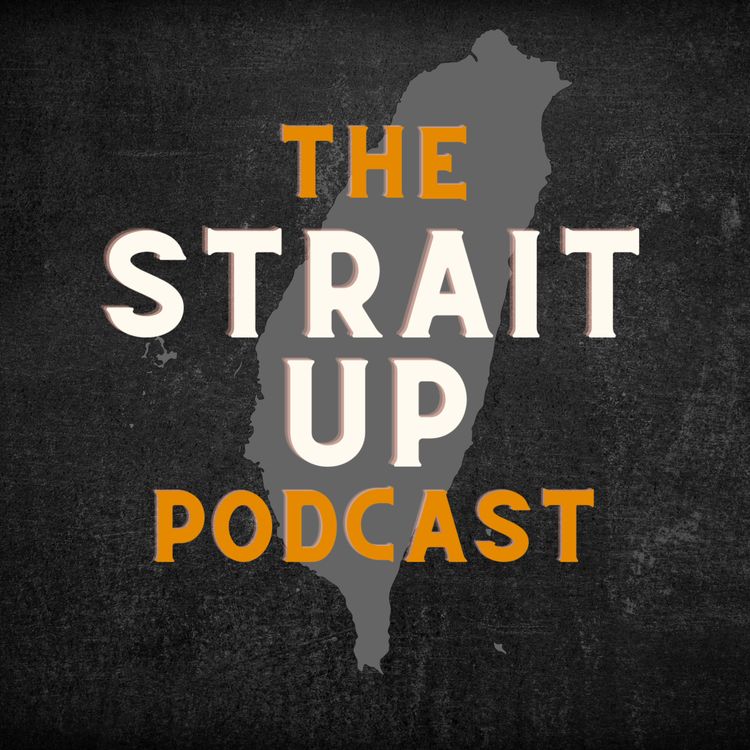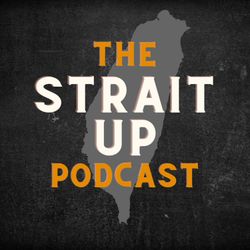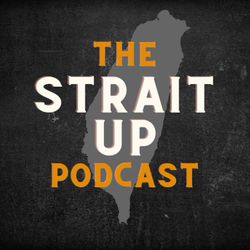Share

The Strait Up Podcast with Chris Gorin
Fighting in the Legislature, Protests in the Streets with Michael Fahey
Fistfights between lawmakers in the legislature. Protests in the streets. Chinese military exercises in the seas around Taiwan. Not to mention a new president. If you’ve been watching news about Taiwan in the last week, that’s probably what you’ve been seeing and hearing. But with so much going on, it can be quite confusing to follow the plot of what’s happening here, and I have an excellent guest to help explain at least part of all this.
My guest is Michael Fahey. Mike is a longtime resident of Taiwan, and makes his living as a lawyer and legal consultant, but he is also a quite influential Taiwan watcher for the English speaking world, and has a great twitter account, which is @shu_wang_gong. Luckily for us, he’s a close follower of Taiwan’s legislature, and his knowledge in that area I think can really help clarify what the issues are in the controversial legislative reform bills at the center of all the chaos in the legislature.
This episode is a long one that covers a lot of ground. We talk about the background issues that led up to this showdown in the legislature, the separation of powers in Taiwan, the basic arguments of the two sides regarding the reform bills, the culture of performative violence in Taiwan’s legislature, why the KMT and TPP seem to be in such a hurry to pass these bills, the KMT’s perceived collaboration with China, how China’s military exercises has affected the debates in and around the legislature, the similarities and differences of the current protests with 2014’s Sunflower Movement, and other topics.
One final note. This is a fluid situation here in Taiwan, and things may change quickly. We recorded this on Saturday May 25th, which I forgot to mention during the recording. There is more action scheduled for Tuesday the 28th both inside the legislature and in terms of protests, so we’ll see how much has changed by then.
Links:
Mike’s Twitter: @shu_wang_gong
Open letter signed by Mike and 29 other scholars about the bills: https://thediplomat.com/2024/05/international-scholars-sound-the-alarm-over-legislative-reforms-proposed-in-taiwan/
Nathan Batto’s blog post about the culture of fighting in the legislature: https://frozengarlic.wordpress.com/2024/05/
Interview with DPP caucus whip Ker Chien-ming: https://asia.nikkei.com/Editor-s-Picks/Interview/Taiwan-s-most-senior-lawmaker-says-opposition-wants-another-Hong-Kong
More episodes
View all episodes

Motorcycles and Taiwan with Bing-yu Chiu
55:00|Today I have another topic that mostly concerns life in Asia, and especially in Taiwan: the ownership and use of motorcycles. By some metrics Taiwan has the highest level of motorcycle ownership in the world.It’s definitely something you notice when living here in Taiwan, as motorcycles not only cover the roads, but also the sidewalks. But, is it all bad? Are there any benefits to having so many people on motorcycles? And, how did it get tot be this way in the first place?Well, today on the show, I have a specialist on this topic to answer some of these questions. Dr. Bing-yu Chiu is research fellow at the Japan Transport and Tourism Research Institute. He has a PhD in City and Regional Planning from the University of Pennsylvania, has worked as a government consultant on transportation issues, and also published articles on these topics in Taiwanese media (found here and here)This episode is a kind of follow up to an interview I conducted with Dr. Cheng Tsu-jui from National Cheng Kung University, where we discussed road safety and pedestrian issues in Taiwan.In this interview, we discuss rates of motorcycle ownership across the world, the pros and cons of motorcycle heavy societies, the relationship between national income level and motorcycle ownership, the link between public transit and motorcycles, their impact on pedestrians, and many other topics.
1. The Future of the DPP with Lin Fei-fan
01:03:32||Ep. 1Hello and welcome to the NEW Strait Up Podcast, a show about international affairs with a focus on East Asia and of course Taiwan. And, if you’re listening to this that means you’ve found the show’s new home on the new podcast feed, so thanks so much for following me here. IFor my very first guest on Strait Up 2.0, I have none other than Lin Fei-fan. Fei-fan was of course one of the leaders of the student-led Sunflower Movement which began in 2014, before moving into party politics and eventually serving as the deputy secretary-general of the Democratic Progressive Party or DPP. He now currently serving on the board of the the DPP’s policy think tank the New Frontier Foundation, and is also on the board of the Taiwan Foundation for Democracy. In this episode, we talk about many topics including Fei-fan’s transition from student leader to party leader, the DPP's future in a divided government, the lesson’s learned in the last election, low wages in Taiwan, and of course we talk a little bit about cross-strait relations.I should say that it’s important to note that although I ask Fei-fan to explain many of the DPPs positions, everything he says in this conversation is only his personal opinion and he is not representing the party in any official capacity. In fact, I was eager to speak to him specifically because he is not currently in the government which I think gives us a little more space to have a more open conversation. Also, I want to apologize about the audio quality on my side of the recording for this episode. I promise that I will never sound that bad again, so don’t hold it against me.
Welcome to the NEW podcast feed!
01:06|If you’re hearing this message, that means you’ve found the new RSS feed for this show! So, if you’re an old listener, thanks so much for taking the time to follow me here. If you’re a new listener, welcome to the show! This is a show where I interview experts, lawmakers, and others about topics related to international affairs, especially those related to East Asia and Taiwan. But I’m excited to say that since this show is independent now, I will likely be expanding the kinds of topics and regions covered here. I already have several interviews recorded with some very interesting and exciting guests, so please keep an eye on this feed, and please share it on your socials or with anyone you think would be interested. I will also soon be opening a YouTube channel to go along with the podcast, so stay tuned for announcements about that as well. Thanks again for listening!